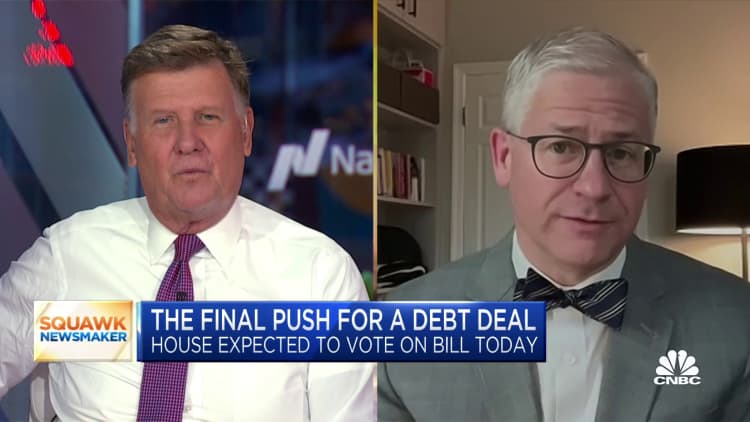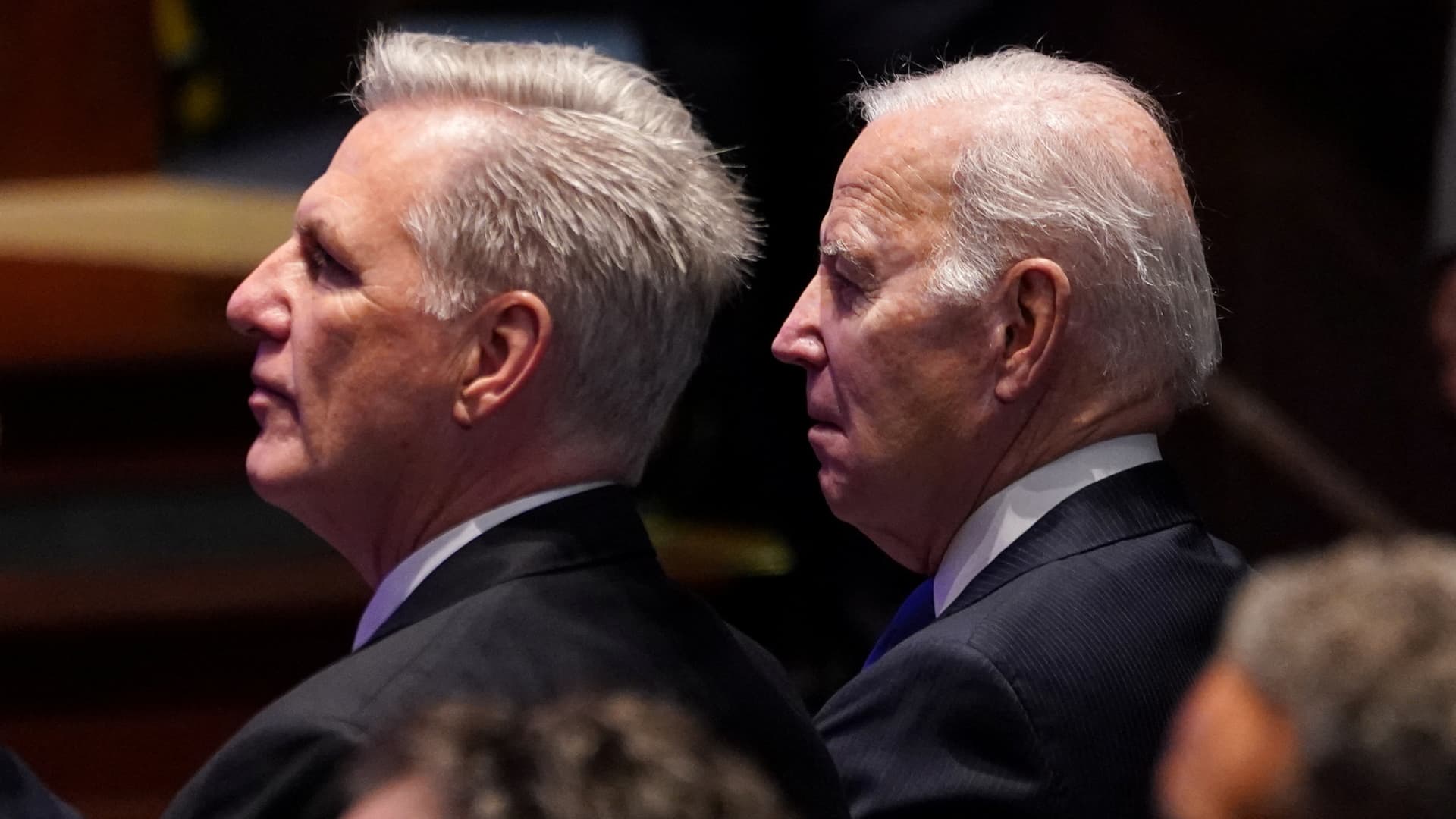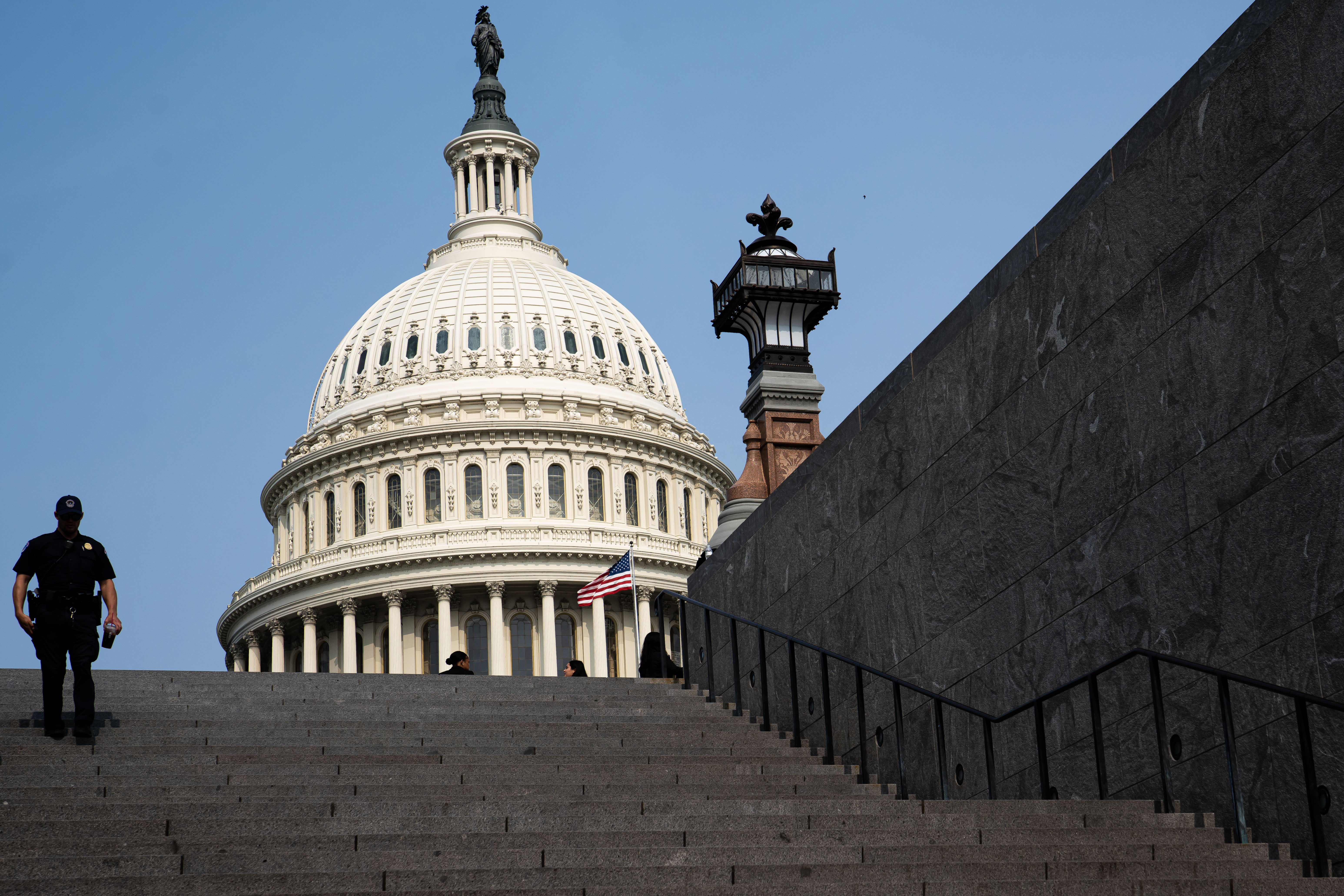
WASHINGTON — House Speaker Kevin McCarthy and White House officials raced to shore up bipartisan support Wednesday for a bill to raise the debt ceiling and cut government spending, as the bill appeared increasingly likely to pass the House, sending it to the Senate.
Senate Majority Leader Chuck Schumer, D-N.Y., signaled he would be willing to allow senators to bring amendments to the floor if those senators agreed in turn to fast track the bill’s passage. Minority Leader Mitch McConnell, R-Ky. said he wanted a deal passed by Friday.
Congress is rushing to approve the measure by Monday, the earliest date the U.S. risks a first-ever sovereign debt default. Treasury Secretary Janet Yellen has said federal funds could dry up in the coming days unless lawmakers raise the borrowing limit.
Failure to do so would upset global financial markets, spark job losses in the U.S. and jeopardize vital government benefits for millions of Americans. To prevent what Yellen has called a potential “catastrophe,” congressional leaders will need to win support for the bill in both chambers of a divided Congress.
In the House, more than 30 Republicans, mostly conservative hardliners, planned to vote against the Fiscal Responsibility Act, despite lobbying from party leaders.
Democrats were also divided, although it was difficult to gauge the full extent of the opposition. Rep. Pramila Jayapal, D-Wash., chair of the Congressional Progressive Caucus, said she would vote against the bill, but as of midday the 101-member group had not taken an official position.
In addition to Jayapal, a handful of Democrats announced plans to oppose the bill, including Reps. Raul Grijalva, Ariz., Cori Bush, Mo., Alexandria Ocasio-Cortez, N.Y. and Ro Khanna, Calif.
House Democratic leadership planned to back the deal, despite the fact that it was negotiated by the White House with little participation from Democrats in Congress.
“I support it without hesitation or reservation or trepidation,” Democratic Leader Rep. Hakeem Jeffries, N.Y., told reporters at a press conference. “Not because it’s perfect, but in divided government we cannot allow the perfect to be the enemy of the good.”
The center-left New Democrat Coalition also backed the bill, saying in a statement that its 94 members would “ensure that this bill gets to President Biden’s desk without unnecessary delay.”
The 64-member bipartisan Problem Solvers Caucus endorsed the plan, all but guaranteeing that the 32 Democrats in the caucus would cast their votes for the bill.
McCarthy needs Democrats
The significance of these pockets of Democratic support became increasingly clear Wednesday, as both parties recognized that McCarthy would need Democratic votes just to get the debt limit bill to the House floor for a final vote, let alone to actually pass it.
Before a bill in the House can be put to a vote, a simple majority must approve the rules for debate on it. Traditionally, members of the party in the minority always vote against the rule, even if they plan to vote in favor of the actual legislation.
But with more than two dozen Republicans having pledged to do whatever they could Wednesday to stop the debt ceiling bill from advancing, and McCarthy’s current 4-vote margin, any plan to try and pass the rule without Democratic votes appeared doomed.
Still, when a reporter asked McCarthy Wednesday if he would ask for Democratic votes to help him pass the rule, the speaker dodged. “I don’t know about that. We’ll see.”
The vote on the rule started around 3:30 p.m. ET.
Further complicating the support and opposition to the bill Wednesday was a surprise finding from the nonpartisan Congressional Budget Office, which released its assessment late Tuesday of the bill’s impact on federal debt and deficits.
The CBO determined that, contrary to Republicans’ stated intent, the bill’s new work requirements for the Supplemental Nutrition Assistance Program (SNAP) would not save any money over 10 years, but would instead actually cost money.
That is because in order to get the White House to agree to new work requirements for able-bodied, childless adults, Republicans agreed to add new exemptions from work requirements for especially vulnerable groups, like veterans and homeless people.
If these exemptions go into effect at the same time as the new work requirements, rather than push people off of food stamps because they fail to meet the work requirements, CBO found that the net effect of the bill will be to enroll an additional 78,000 a month in the program from the exempted categories, like veterans.
Republican party leaders pushed back, and claimed on a hastily arranged conference call that the CBO was incorrectly counting people who were already exempt from work requirements.
But Republican opponents of the bill quickly seized on the CBO finding to argue that the bill betrayed its own conservative principles.
“You can’t make this stuff up… The disastrous Biden-McCarthy deal expands welfare,” Rep. Andrew Clyde, R-Ga., tweeted Wednesday.
Still, GOP Rep. Patrick McHenry, one of the negotiators on the deal, told CNBC on Wednesday that he believed the bill has enough votes to pass.
The legislation is the result of a deal reached between McCarthy and President Joe Biden, which essentially hands conservatives several ideological policy victories in exchange for their votes to raise the debt ceiling beyond next year’s presidential election and into 2025.
Most importantly, the bill would avert a potentially catastrophic U.S. debt default that the Treasury Department said will likely occur next week if Congress does not act to raise the nation’s borrowing limit.
As Biden departed Wednesday for Colorado, he appeared to accept that the fate of the bill was out of his hands.
“God willing, by the time I land, Congress will have acted, the House will have acted and we’ll be one step closer” to avoiding default, he said.
This is a developing story, please check back for updates.









More Stories
US announces $275 million security package for Ukraine – Times of India
China conducts military exercise around Taiwan after new president’s inauguration – Times of India
Texas power demand breaks May record again as prices soar in heat wave – Times of India